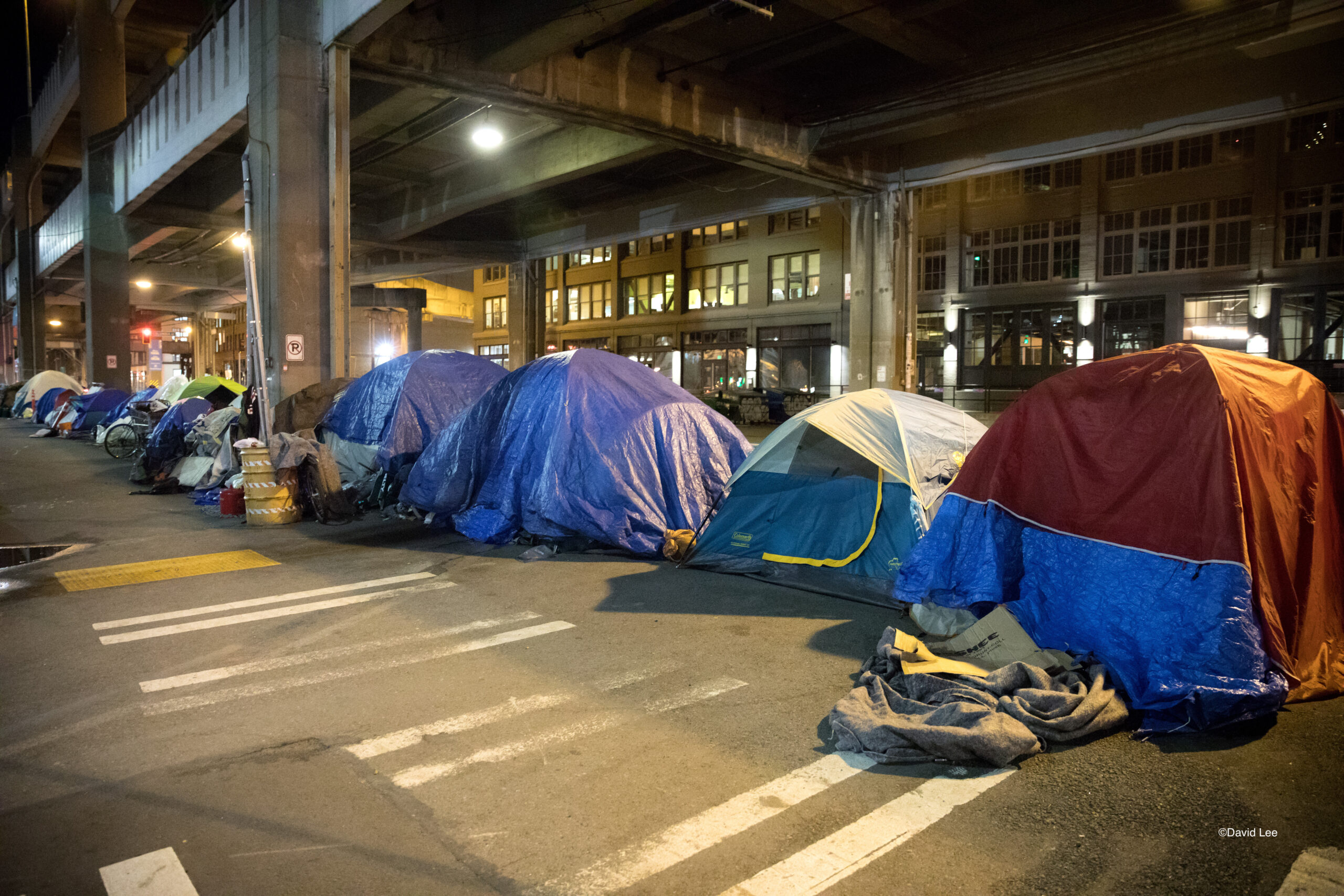Not all of California’s homelessness problems can be blamed on poor public policy. But much of it is due to statutes and ordinances that have incentivized vagrancy. This should not be in dispute and should inform policymaking today and in the future.
But apparently some don’t see it that way.
Newly elected Sen. Sasha Pérez, D-Pasadena, has introduced Senate Bill 634, legislation to effectively bar local governments from imposing civil or criminal penalties on the homeless who camp on property that doesn’t belong to them.
The bill would prohibit state agencies from adopting similar rules.
According to the Sacramento Bee, Pérez was moved to introduce the bill because “we’ve seen jail stays for simply being homeless.”
“And recently we have even seen threats to fine individuals for ‘aiding and abetting’ the homeless … It’s not just that these policies are inhumane, but they do not work,” she says.
Of course, her approach of not enforcing “no camping” laws is precisely what California has been doing for the past two decades. Does she think that the status quo has worked?
California’s homeless population now exceeds 187,000 – nearly one-quarter of the national total and nearly one-half of all unsheltered people. In 2020, the homeless count in California was not quite 162,000. Both those numbers make the 2015 figure of 116,000 seem like a golden age.
Rather than Sen. Pérez’s approach of implementing the same policy and hoping for a different outcome – a definition of insanity often misattributed to Albert Einstein – the recent Supreme Court Grants Pass decision creates the opportunity for more effective (and more humane) policy options.
As noted in PRI’s amicus brief filed in the case, enforcing anti-vagrancy laws has a long history in the U.S. When combined with effective support, anti-vagrancy laws are an integral part of the solution to California’s homelessness problem.
Regardless of how someone became homeless, the vast majority of people living on the streets are suffering from addiction and/or mental health issues. A study by California Policy Lab at UCLA found that 84% of unsheltered homeless reported a physical health condition, 78% reported a mental health condition, and 75% reported a substance abuse condition. A Los Angeles Times review of over 4,000 questionnaires taken by homeless individuals found similar results – that 67% of the unsheltered homeless were dealing with substance abuse or mental health problems.
Resolving the unsheltered homelessness crisis is, consequently, synonymous with sustainably addressing the problems of mental illness and addiction. People suffering from these problems are also unlikely to accept assistance or seek the help they need. Anti-vagrancy laws create opportunities to provide the treatment they need.
There are also many innovative programs being implemented in California that can more effectively help the homeless at a lower cost to the state and local governments. The innovative public-private partnership between San Jose Mayor Matt Mahan and Dignity Moves exemplifies the possibilities.
As our video on DignityMoves describes, the organization uses scalable temporary housing solutions to “bring people indoors quickly, safely, and at scale.” It also achieves these goals for a fraction of the costs that the government currently spends. According to DignityMoves,
under Mayor Matt Mahan’s visionary leadership, San Jose has remarkably reduced the number of unsheltered homeless individuals, with more than a 10% decrease attributed to the city’s successful focus on scaling interim housing solutions as part of the continuum of housing. This project can potentially help over 2,000 people on their path out of homelessness over the next 10 years.
California will not solve its homelessness crisis by relying on the same failed policies. Instead, the state should embrace a comprehensive approach that focuses on lower-cost temporary housing and cost-effective treatment. Preventing the enforcement of anti-vagrancy laws obstructs this strategy to the detriment of the homeless and broader community.
Dr. Wayne Winegarden is a senior fellow in business and economics at the Pacific Research Institute. Kerry Jackson is PRI’s William Clement Fellow in California Reform.

